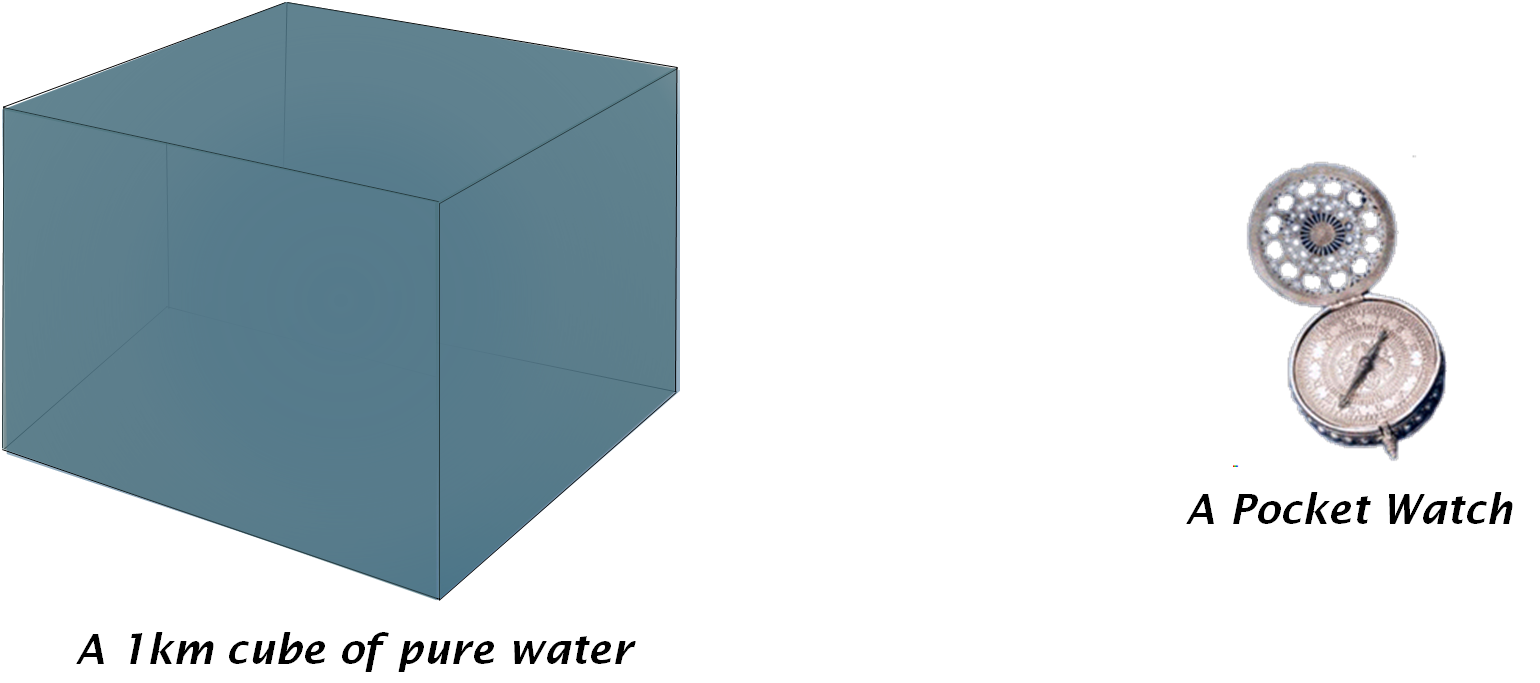 |
| Music |
| Computing |
| Info Arch |
| Theory |
| Practice |
| Glossary |
| Index |
Complexity |
|
A measure of how complicated a situation is. One might think that everyone intuitively understands when a complex or simple situation is being encountered, however the concept is a bit more of a challenge.

Here is an example. Which is more complex, a 1km cube of pure water or a 17th century pocket watch? The only possible answer is, of course, that the question as it is posed has no meaning. If we are, for example, documenting the impact on the development of scientific instruments then clearly the watch has a more complex and interesting history, if we are describing what happens when you drop something then the water, being larger and liquid, takes more effort to describe.
Complexity can only really be discussed in relation to the model being used and the goal of the modelling process.
So, once we have decided on the goals of our modelling and how we are going to describe the situation, one would have thought that measuring the complexity was easy. We just have to count the number of bits. Except even that is not simple.
There are whole fields of "Complexity Research" that focus on how apparently complex behaviours can emerge from simple situations, in these cases a seemingly complex situation can be described in a surprisingly small number of bits. That is the technique that lossy algorithms use to deliver such amazing compression ratios for things like mp3 and jpeg. Even when we have defined a particular model it is difficult to work out what is the simplest description that allows us to reconstruct a particular situation.
So in general complexity is only related to a particular description, and it is really difficult to measure. Removing complexity is often a stated goal of Information Architecture. One way to achieve that is to clearly document the existing contributions of all the interested parties and integrate them into a consistent structure. However by far the most important contribution is to discover a model that is both rich enough to reveal the issues without being so intricate that the effort of populating it is uneconomic. Even from a theoretical viewpoint we can also see how difficult this process can be.
Links to this page
The following pages link to here: IA Best Practice, Inference, Information Architecture, Information technology, Information Theory, Metaphor, Model, Pin Factory, Theory